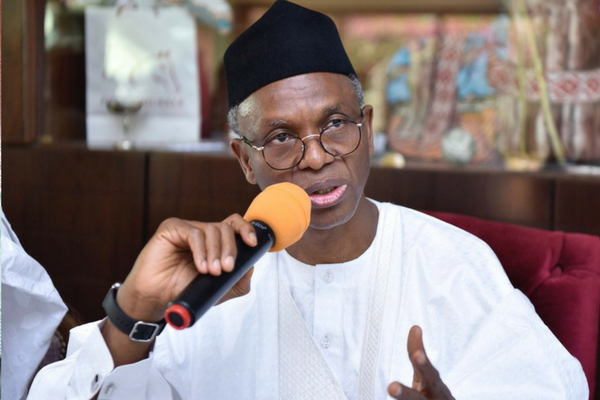Reno Omokri Criticizes Ajaero's Midterm Assessment of President Tinubu's Performance

Reno Omokri, an author and staunch supporter of the Bola Tinubu government, responded on June 5, 2025, to criticisms from Joe Ajaero, President of the Nigeria Labour Congress (NLC), regarding his midterm assessment of the administration. Omokri contended that Ajaero's assertion that Nigerians had experienced no gains under President Tinubu was factually incorrect.
Earlier, Ajaero had maintained that the first two years of Tinubu’s administration brought Nigerian workers and the masses no benefits, only characterizing the period with "pain and misery." He stated there had been nothing to celebrate since the government assumed power.
In his rebuttal, Omokri argued that Nigeria’s national debt had decreased from $108.2 billion on May 29, 2023, to $94.2 billion by June 5, 2025. He emphasized that historically, only the Olusegun Obasanjo administration and now the Tinubu government had succeeded in reducing the nation’s indebtedness among civilian governments.
Omokri further elaborated that the removal of fuel subsidies led to increased federal allocations for states, more than doubling what they received under the Muhammadu Buhari administration. Consequently, he noted, Nigerian states' indebtedness had reduced, with 33 out of 36 states and the FCT collectively repaying approximately N1.85 trillion in domestic debt between June 2023 and December 2024. He added that only Rivers, Niger, and Enugu states saw an increase in their debt profiles.
Economic reforms under Tinubu were also highlighted by Omokri. "Due to the floating of the naira, our foreign reserve hit a year-to-date high of $40.877 billion. That is up from the $3.7 billion inherited from General Buhari," he stated. He also pointed to a record-breaking trade surplus of $14.31 billion in 2024, attributing this to the Naira flotation which made Nigerian exports more competitive than imports.
Omokri asserted that the academic sector had seen stability, stating, "ASUU has not even dreamt of striking under Tinubu. This is the first time since President Shehu Shagari’s era that Nigeria has had two years without an ASUU strike." He also mentioned that 600,000 students were benefiting from the Tinubu administration’s student loan initiative, which he suggested provided university education opportunities for those who might otherwise not afford them.
Regarding labor, Omokri noted that President Tinubu signed the New Minimum Wage Bill into law on July 29, 2024, establishing a N70,000 minimum wage, more than double the previous amount. He also addressed public services, rhetorically asking, "When Was the Last Time You Heard of Passport Scarcity?" He claimed the Tinubu government had ended passport scarcity and reduced processing times to less than two weeks through a new online portal.
Significant infrastructure projects were also part of Omokri's defense. He described the Tinubu administration as undertaking the largest infrastructure projects in Nigeria’s history, including the Lagos Calabar Coastal Highway, which is being constructed simultaneously from both Calabar and Lagos. This project, he said, is anticipated to reduce travel times between the South-west and South-south by 25-30 per cent and increase Gross Domestic Product (GDP) by 6-8 per cent. Ongoing projects like the Ilela-Sokoto-Badagry Expressway and the reconstruction of the Enugu-Onitsha Expressway were also mentioned.
Omokri praised the performance of the Nigerian Stock Exchange, noting it surpassed the 100,000 All Share Index (ASI) in January 2024, briefly becoming the world’s most profitable market, overtaking Argentina. He added that it reached another all-time high of 109,850.83 ASI in February 2025, and African markets named it the third most profitable in Africa for 2024, a stark contrast to its state under the previous administration.
In the power sector, Omokri reported that on Friday, March 4, 2025, Nigeria achieved a record peak power generation of 5,801.84MW and a maximum daily energy output of 128,370.75 megawatt-hours (MWh), the highest in the nation's electricity industry history. He also cited a 3.84 per cent GDP growth in the fourth quarter of 2024, the highest in three years, contributing to a full-year GDP growth of 3.4 per cent for 2024, an increase from the 2.7 per cent inherited in 2023.
Finally, Omokri highlighted positive re-evaluations by international credit rating agencies. Fitch Ratings upgraded Nigeria’s economy to a Stable B on April 11, 2025. Subsequently, on May 30, 2025, Moody’s upgraded Nigeria’s economy to B3 from Caa1, attributing the improvement to significant economic progress resulting from Tinubu’s reforms.









